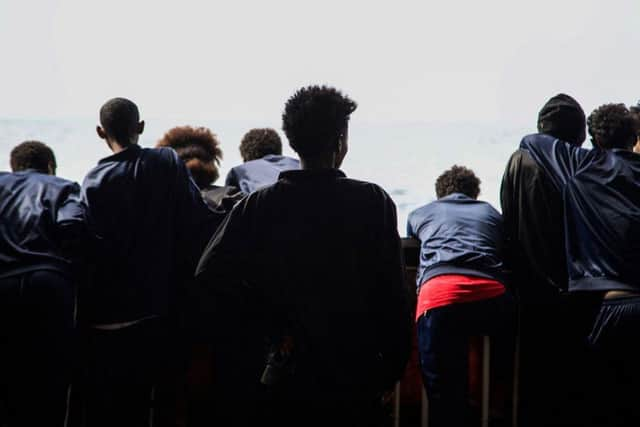More than 3,000 people died while trying to cross into Europe, United Nations' refugee arm has warned
A new report released on Friday by UNHCR called for “urgent” support to prevent deaths and protect refugees and asylum seekers who are embarking on dangerous journeys by land and sea. The body said that $163.5 million [£130.4m] is needed to assist and protect refugees.
Of the 2021 total, 1,924 people were reported dead or missing on the Central and Western Mediterranean routes, while an additional 1,153 perished or went missing on the Northwest African maritime route to the Canary Islands. The number of deaths reported in 2020 were 1,544 for the two routes. Since the start of the year, an additional 478 people have also died or gone missing at sea.
Advertisement
Hide AdAdvertisement
Hide AdMost of the sea crossings took place in packed, unseaworthy, inflatable boats – many of which capsized or were deflated, leading to the loss of life. The sea journey from West African coastal states such as Senegal and Mauritania to the Canary Islands is long and perilous and can take up to ten days. Many boats drifted off course or otherwise went missing without trace in these waters.


Land routes also continue to be highly dangerous, where even greater numbers may have died on journeys through the Sahara Desert and remote border areas, in detention centres, or while in the captivity of smugglers or traffickers. Among the litany of abuses reported by people travelling these routes are extrajudicial killings, unlawful and arbitrary detention, sexual and gender-based violence, forced labour, slavery, forced marriage and other gross human rights violations.
UNHCR spokesperson Shabia Mantoo, said: “The Covid-19 pandemic and related border closures that continued in 2021 have also impacted movements towards North Africa and European coastal countries, with many desperate refugees and migrants turning to smugglers to facilitate these perilous journeys. UNHCR warns that continued political instability and conflicts, deteriorating socioeconomic conditions as well as the impact of climate change may increase displacement and dangerous onward movements.
“UNHCR is appealing for support to help provide meaningful alternatives to these dangerous journeys and prevent people from becoming victims of traffickers. The approach calls for increased humanitarian assistance, support and solutions for people in need of international protection and survivors of gross human rights abuses.”
Ms Mantoo added: “At the same time, UNHCR is urging States to commit to strengthened humanitarian, development and peace action to address protection and solutions challenges. UNHCR is also calling on states in the regions – in both Africa and Europe – to enhance legal frameworks and operational capacities at land and sea borders and in urban centres, and to ensure credible alternatives to dangerous journeys through inclusion, and strengthened youth programming and local community-based development.
“Failing this, refugees, asylum seekers, internally-displaced people and others will continue to move onwards in dangerous journeys in search of safety and protection. Other people, including migrants, will move onwards to seek a better life, hoping to find work or educational opportunities elsewhere in the absence of sufficient seasonal or longer-term legal pathways for safe and orderly migration.”
Comments
Want to join the conversation? Please or to comment on this article.